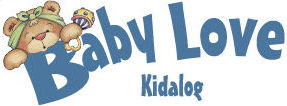The recall of more than 2 million cribs should cause us to question our attitudes towards sleep, parenting practices, workmanship, and commercial lobbying.
At the beginning of the "modern" practice of putting babies in cribs instead of sleeping with the nursing mother, cribs had widely spaced rails, but this was not a problem because the cribs were usually in the parents room. As society became more affluent and baby was placed in a separate "nursery" away from the parents, crib accidents occurred due to the widely spaced rails. Safety standards on rail spacing were implemented. Society's attitude changed to thinking that babies' behavior should conform to the parent's convenience, and that parent's deserved an uninterrupted night's sleep. Working mothers wanted their babies to sleep through the night. Other mothers just wanted to return to their pre-baby lifestyle when it was their choice of when and how long they slept. There is a shocking acceptance of "sleep training". Sleep training encourages parents to shut the baby away in a room where there is a lack of supervision, and a wakeful, squirming baby is left alone for extended times. Is the crib to blame when the baby is isolated and neglected, and fatalities occur?
Even though the crib manufacturers are based in the USA, the vast majority of the cribs that are recalled were manufactured in Asia, Mexico, or Croatia. This was no doubt done to keep the price cheap. Factories who are pressured to produce cheap product cannot be blamed for products that fail under long term use. Parents who want "cheap" so they have more money to spend on other things, do not have their baby's safety as a priority! Governments who allow duty rates that favor imports rather than supporting businesses in their own country, do not have their citizen's jobs as a priority! Parents who do not check labels and buy products made locally or in their own country, do not have their baby's safety AND future economic security as a priority.
Why is it that the CPSC will recall 2 million cribs, but still say that play yards are safe for sleeping? Bumper pads which protect babies from bruises, are no longer recommended, but chemical-laden, off-gassing crib mattresses are ignored as a safety hazard. Baby formulas full of hormone-altering, neurotoxic, carcinogenic chemicals are mainstream. Due to consumer awareness, many manufacturers removed BPA, phthalates, and DINP from plastic baby bottles, but CPSC has not banned these substances, and in fact, both CPSC and FDA stated that BPA is safe even though other countries have banned them! Plastic feeding utensils, soothers, and teethers, are full of harmful chemicals and many babies use these daily. Do these dangerous products persist because businesses, and associations that represent them, have a stronger lobbying presence with government agencies?
